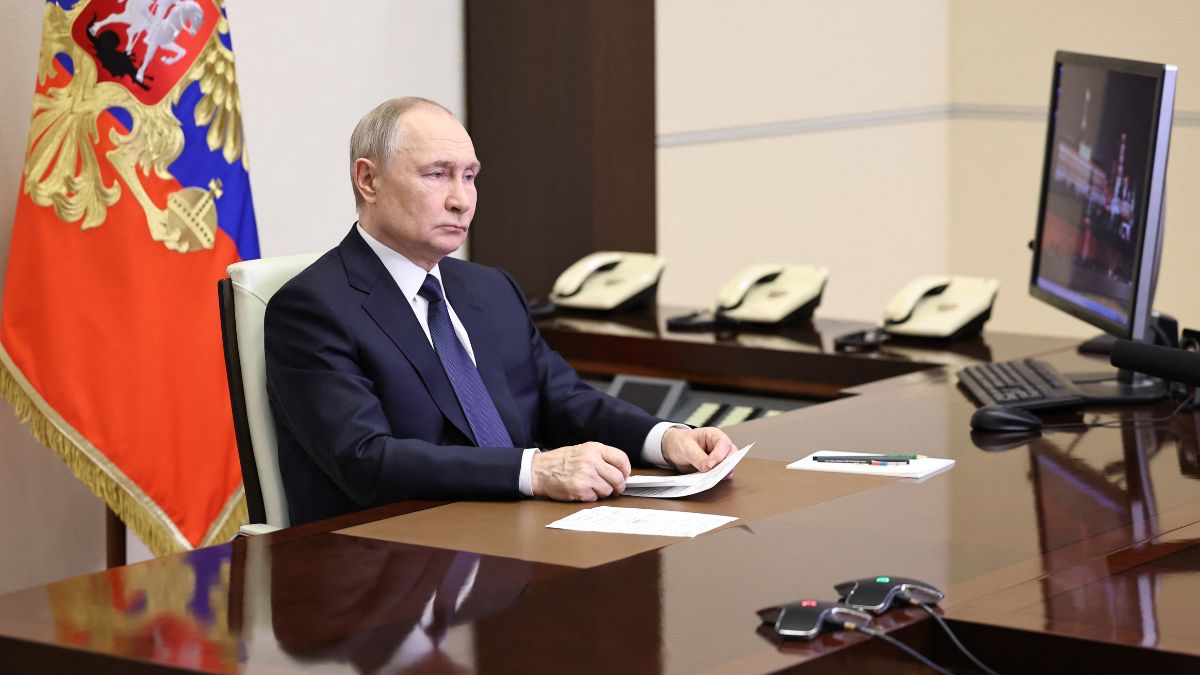After removing all political opposition and critics in his 25-year reign, Russian leader Vladimir Putin has now started cracking down on ultranationalists who have been some of the biggest cheerleaders of Russia’s war on Ukraine.
In recent months, several prominent Russian military bloggers —popularly called ‘milbloggers’ in Russian parlance— have been declared as ‘foreign agents’.
For more than three years, Russia’s milbloggers have not just served as Kremlin’s propogandists in the war but have also raised funds for troops. But their rising influence critique of the military leadership meant they were on a short leash despite their reach. And Putin’s patience has now run out.
Russia watchers had long predicted that this was bound to happen. In fact, some are surprised that it took three years for the crackdown to start.
The rise & fall of Russia’s milbloggers
Roman Alekhin was among those milbloggers who became popular as ‘z-bloggers’ over their coverage of the Russian war on Ukraine.
Alekhin ran a pro-war Telegram, channel, advised a Russian governor, and received military honours for fighting in Ukraine, and was a poster boy of z-bloggers, but the Russian state has now labelled him as a ‘foreign agent’, according to The Telegraph.
Formally, Alekhin has been accused of misusing funds he raised for Russian troops. But there are hints that it could be more than corruption.
For three years, milbloggers like Alekhin had become self-styled war correspondents and commentators who provided Russians a coverage of the war distinct from the one broadcast from Kremlin-approved television and radio channels. Even as these milbloggers did not outright criticise Putin, they offered critique —not criticism— of the military and at times criticised military leaders for meatgrinder tactics and poor training of soldiers. That was unacceptable to Kremlin.
Quick Reads
View AllKeir Giles, a senior Russia analyst at Chatham House, was surprised that the crackdown had not happened sooner.
“This is the kind of dissent that, if it was directed at the political system, would have earned reprisals long ago,” Giles told The Telegraph.
Such milbloggers were “seen by some as a safety valve, a means by which critics could vent without actually challenging the overall state policy” but “that avenue has now been closed off”, said Giles.
Just like Alekhin, Sergey Markov, a prominent pro-Kremlin pundit, was listed as a foreign agent in August. Russia watchers have said he was punished for having an independent stance on Russia-Azerbaijan stand-off.
Last month, Tatyana Montyan, a former Ukrainian lawyer who became Russian pro-war propagandist, was added to Russia’s list of ’terrorists and extremists’ for alleged misappropriation of money raised for the war — just like Alekehin.
Last week, Oksana Kobeleva, the founder of a prominent pro-war Telegram channel, was detained by anti-extremism police and accused of discrediting the military. The action was taken after she criticised Apti Alaudinov, who commands Chechen Akhmat special forces.
Toe Kremlin’s line or get purged
So far, such milbloggers had been ‘useful idiots’ of Russia, but their critique meant that their commentary or reporting was not always in line with the Kremlin — even if milbloggers were not necessarily criticising the war but just critiquing.
The Z-bloggers, who often have close ties to the military, are both intrinsically useful and dangerous to the Russian state, according to Iona Cleave and James Crisp of The Telegraph.
“They lobby support for the war and mobilise public donations for the front, bringing in a vital cash flow. But they also hold a significant sway on public opinion and offer an alternative source of information on the war to the Kremlin’s official channels,” Cleave and Crisp noted in an article.
There is also a growing rift between ’loyalist’ milbloggers who unquestioningly peddle the Kremlin’s versions and ‘grassroot’ milbloggers who publish their own critique. It is the second category that is now being purged as they often talk about soldiers on frontlines instead of commanders and generals and sometimes rail against improper training and meatgrinder tactics.
The increasing intolerance from both the Kremlin and the loyalists “signals the red lines are changing and the manoeuvring space for the critical community is narrowing”, according to Dr Martin Larys, a Senior Researcher of the Institute of International Relations in Prague.
“It is a reflection of the worsening situation on the front line, including the increasing rate of desertions,” Larys told The Telegraph.
)